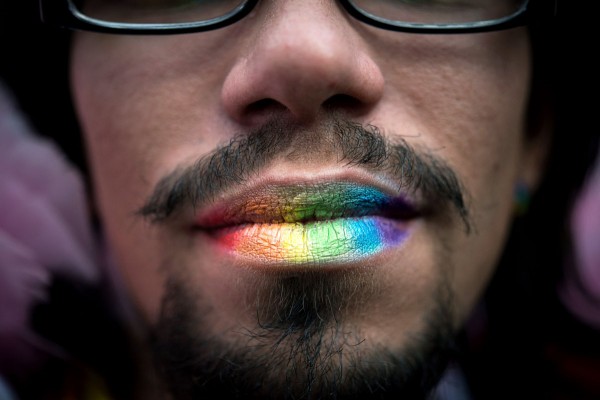Last week’s installment of “Love and Lust in Queer Seattle” was a salty rant against Valentine’s Day and the pressure it brings to overextend oneself for the sake of forced romantic gestures. But despite my bitterness, all the heart emojis and smooch-face selfies in my social media feeds made it clear: people like an excuse to express love. Let’s have some fun, flip the coin, and show the positive side of romance.
First, let’s establish what romance is. When you boil it down, romance is an effort to show someone you care about them, going out of your way to make them feel appreciated. Popular notions of romance depict it as flowers, surprise gifts, jewelry, lavish vacations, candlelight, sensual foreplay, and general preplanned gestures to woo your way into someone’s heart. Or onto their genitals.
When reduced to these typical themes or actions in the beginning, romance becomes a marketing ploy: you are selling yourself as a proactive charmer who regularly engages in this behavior for your mate. But who can be counted on to consistently wine and dine their lover every week throughout their life? And how much money do they have at their disposal for roses and bubbly?
Romance, in this form, is a courting ritual. It’s exciting to watch a man’s face as you take off the blindfold and show him the scented bath you’ve drawn for him, or to make a woman’s day with surprise reservations at Poppy. It’s a way to entice a new lover into seeing undiscovered, attractive facets of your personality, or to endearingly/erotically spice things up with your partner of many years. But not everyone appreciates the same romantic gestures.
People have different ways they like to express and receive affection. According to Gary Chapman’s popular book The Five Love Languages: How to Express Heartfelt Commitment to Your Mate, there are five distinct methods to do this: gifts; acts of service; words of affirmation; quality time; physical touch.
Personally, I hate to receive gifts. It makes me feel indebted and even embarrassed when a guy buys me expensive things without reciprocation. Compare this to several friends of mine who assert that if a man isn’t buying you gifts on the regular, he’s not worth your time. It’s important to identify what actions or gestures make you feel the most loved, and to assess what “love language” a partner needs as well. They’re often different.
It’s also important to acknowledge that each style of affection has its own romantic qualities. It’s not all about buying gifts or performing grandiose actions for someone. Someone’s most ideal romantic date could include listening to music while wrapped in each other’s arms, or talking all night on the rooftop deck of your apartment building. Even giving a sincere compliment is, in its own way, romantic.
If Valentine’s Day, anniversaries, birthdays, or other once-a-year romance events have anything positive going for them, it’s the fact that they challenge us to get creative with showing someone we love them. But why wait for these annual dates to put in some effort? Exercise some spontaneity or schedule a secret day to do something out of the blue for your lover. Bonus points if it’s not necessarily your favorite, but you know they love it. Investing this type of effort and attention into your relationship can help your mate feel truly valued.
It’s important to remember that romance is not the foundation of a relationship, and signing up for a relationship with someone based on romantic gestures alone is a mistake. But sprinkle it in and enjoy it as a tasty seasoning on the main course.
How do you like to give and receive romance? Is it overrated? Convinced you’ll die alone? Comment with your opinions or anecdotes, engage on social media, or email me at ryan@seattlegayscene.com.




















